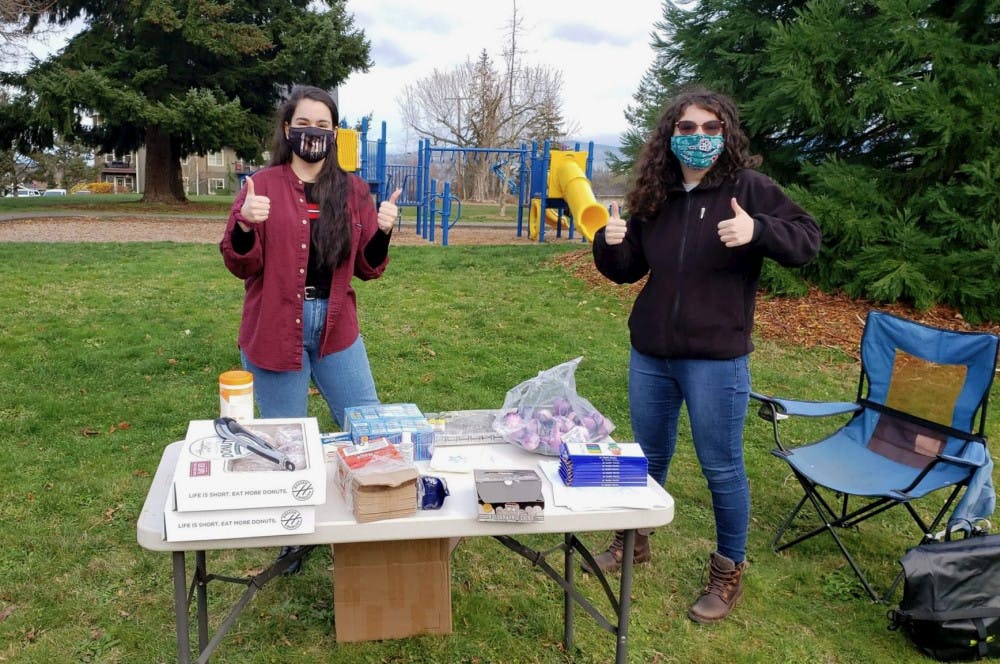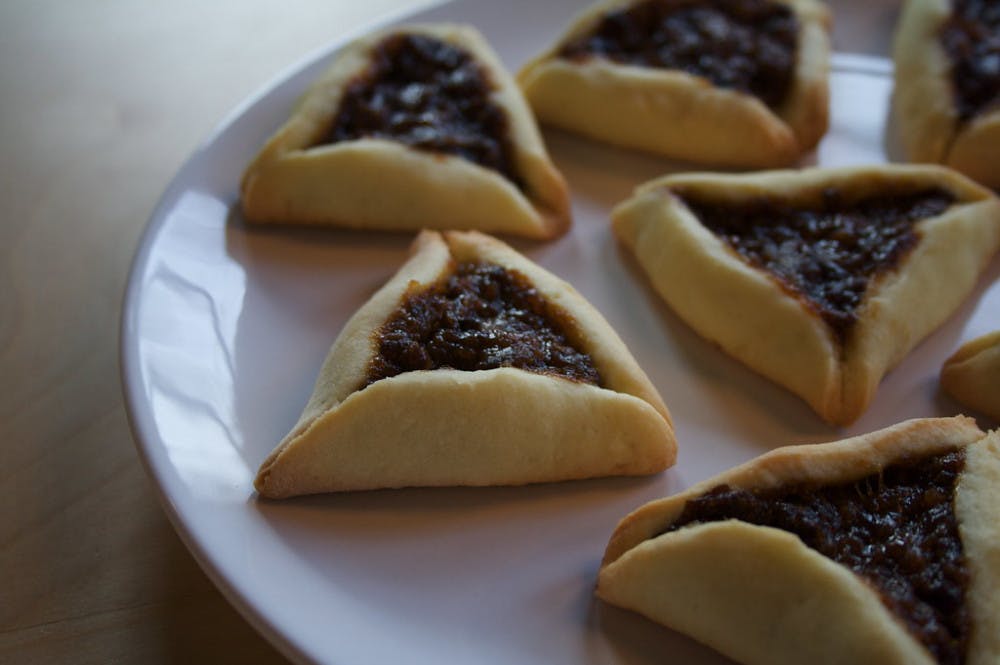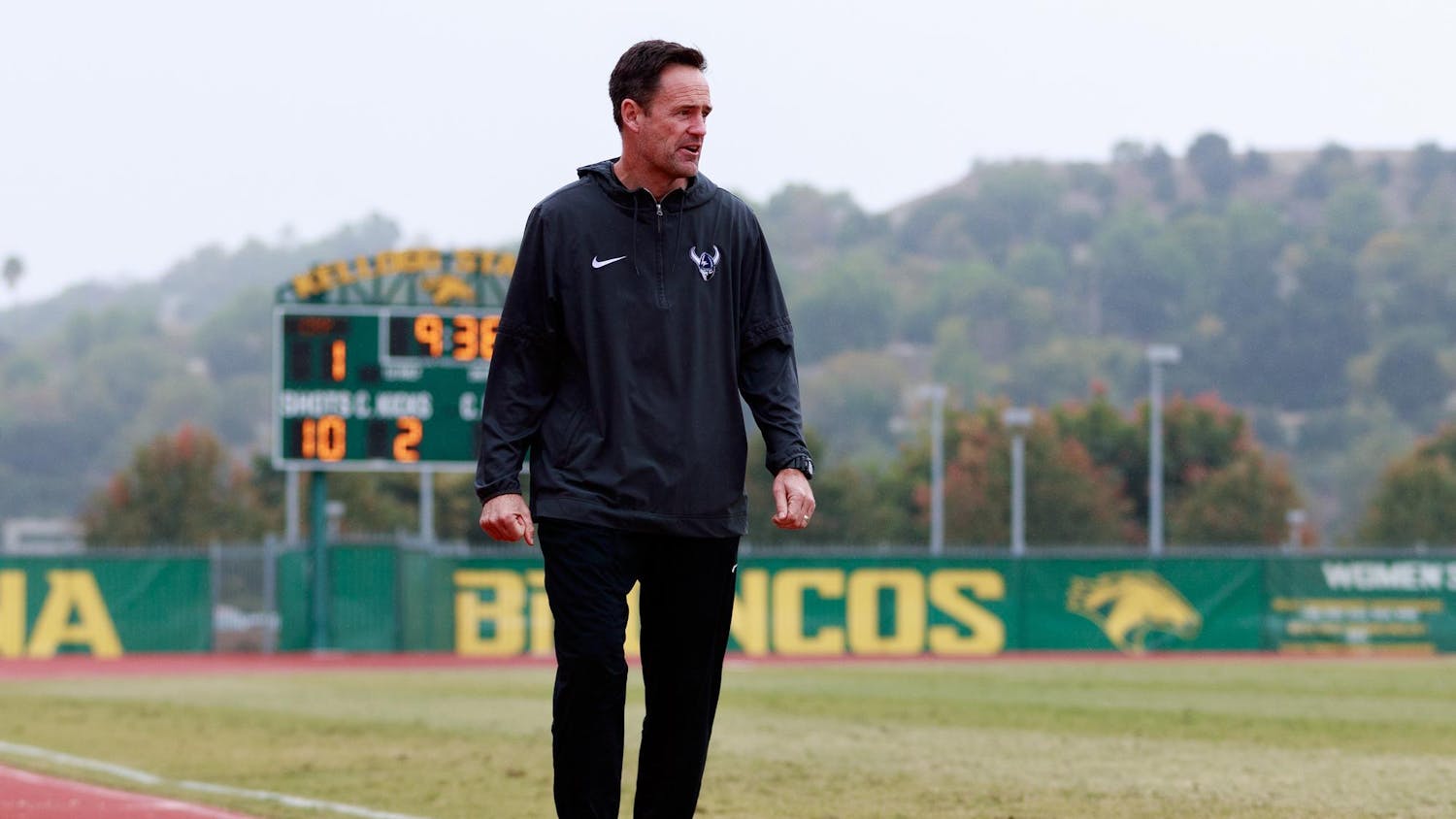Hillel of Western Washington University to host outdoor Purim event Sunday, Feb. 28

Amid the pandemic, students of Hillel of Western Washington University have a reason to celebrate.
This Sunday, Feb. 28, members of Hillel of WWU, an ethnic and cultural Jewish club at Western, will host one of their first in-person events of the year, Purim Grab Bags, in honor of the Jewish holiday of Purim.
This public celebration will take place — masked and socially distanced — at Harriet Spanel Park. From 1:00 p.m. to 3:00 p.m., students will have the opportunity to make and receive gift bags in celebration of Purim.
“One of the main themes of this month, the Jewish month of Adar, is joy,” said Naomi Siegel, program coordinator for Hillel of WWU. “One of the things that help us spread joy at the time of Purim is giving gifts to friends and family.”
Noam Pianko, director of the Stroum Center for Jewish Studies at the University of Washington, said Purim is based on a story from the book of Esther in the Jewish Bible.
“This is a classic story of an oppressed minority group who is ultimately able to protect themselves,” Pianko said.
In the story, Haman, a wicked advisor to the king, plans to wipe out the Jewish people. But Esther, the queen, uses her influence to save them.
There are many traditions tied to the celebration of Purim. One, Pianko said, is the giving of gift baskets, also known as “mishloach manot.” Other traditions include rereading the Megillah, the scroll of Esther, dressing up in masks and costumes, enjoying a meal together and doing skits and roasts.
Pianko said there’s a saying at Purim: People should drink enough alcohol that they can’t tell the difference between Haman and Mordecai, the antagonist and protagonist of the story.
“I think there’s also an element of a topsy-turvy world where things are backward and the wrong people are getting threatened,” Pianko said. “By dressing up in costumes and masks and making fun of one another, you’re kind of challenging the basic order of things and showing how out of place Purim maybe is.”
Hanalei Lewine, a fourth-year chemistry major and member of Hillel of WWU, is one of the students attending the Purim celebration.
Lewine said past Purim celebrations included baking hamentashen, traditional triangle-shaped filled cookies, and ice skating in costumes. While this year’s celebration will be much more limited, Lewine is still excited.

“I’m most looking forward to seeing people in person, even if it’s outside and we’re all wearing masks,” Lewine said. “Having that community feeling is hard to get over Zoom.”
Lewine grew up in an observant Jewish household, attending Hebrew school, Jewish summer camp and Jewish youth group. She said when she moved to Western, she joined Hillel of WWU as a way to stay connected with the Jewish community.
“I think the best thing is just bringing Jewish students together,” Lewine said. “It’s honestly like a little family, all of us together, because there are so few of us on campus.”
Siegel said Hillel of WWU is a space for students with a diverse range of experiences with Judaism. Some students have grown up in observant households, while others are beginning to explore Judaism.
Since the start of the pandemic, many of Hillel of WWU’s activities have changed.
Under normal circumstances, Siegel said she would bring food to in-person club meetings, host weekly bagel brunches and help plan events.
Now, aside from a few outdoor events, the club has gone almost entirely virtual. During the pandemic, Siegel said she’s helped facilitate virtual game nights, cooking clubs and mailed care packages to students.
Siegel said maintaining connection, even in a minimized way, serves as an important way of “keeping tabs” on the Hillel of WWU community.
“I think it’s especially important to just maintain our presence and our community,” Siegel said. “Especially for those that don’t have a large support system during this year to just know that they have somewhere they can turn and community and friends that care about them.”
Lewine echoed these needs of community and support.
“It’s really important to have people you can talk to and people who kind of can relate to you and know what you’re going through,” Lewine said. “I think having the Jewish community specifically is really nice because we can all relate to one another on a deeper level than maybe non-Jewish community.”
This year, Purim stands as a reminder not only of the pandemic’s approaching anniversary but of the importance of resilience during such a time, Pianko said.
“Part of the resilience comes from ritual and repetition and symbolism,” Pianko said, noting the ritual structure of the Jewish calendar. “Investing and being part of a community that has a structure like that is especially valuable at a time like this.”
Pianko said that Purim also speaks to resilience on a broader scale.
“A story like Purim is really interesting because, on one hand, it’s from … more than 2,000 years ago in a very distant and different place. And yet the themes of Purim couldn’t be more relevant for contemporary discussion about politics and difference and outsiders and insiders today,” Pianko said.
As the pandemic continues, Siegel said celebrations like Purim can take on new meaning and value.
“There’s always lessons to learn and relearn and messages from these stories that we tell year after year to be applied in new ways to our lives,” Siegel said. “It’s a great reminder to remember to celebrate during this year that’s been really challenging and to also cultivate community during this time that’s been really isolating.”





